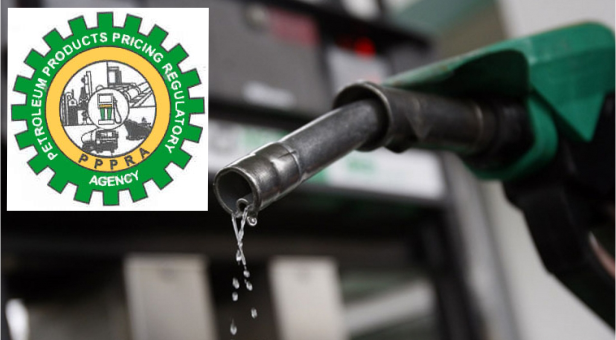
 Petroleum marketers are going to forfeit N16.5 billion in possible subsidy claims due to oil price increases at the international market over hoarding of product, which they preferred to call inventory stock.
Petroleum marketers are going to forfeit N16.5 billion in possible subsidy claims due to oil price increases at the international market over hoarding of product, which they preferred to call inventory stock.
But the losses are more than made up for the high inventory level built at the time of the sudden pump price increase in Premium Motor Spirit, PMS, also called petrol.
At the new pump price of N145 per litre, marketers are more than willing to forfeit any subsidy claims prior to the price increase as they were already reaping about N58.50 per litre against the previous pump price of N86.50 per litre. As a result, less N13 per litre, the marketers still have a handsome excess profit of N45.50 per litre.
Vanguard reliably gathered that subsidy levels as at May 6, had reached the N13 per litre mark before the Federal Government made the sudden announcement of N145 per litre for petrol on May 11.
This is to avoid further accumulation since there was no provision for subsidy in the 2016 national budget. Neither the Department of Petroleum Resources, DPR, nor the Petroleum Products Pricing Regulatory Agency, PPPRA, the industry regulators, has offered any figure on the inventory level at the time of announcement of the pump price change.
But Vanguard learned that this was already running into billions of naira, as daily accumulation is put at N520 million i.e. 40 million litres x N13.
Hoarding, belated announcement Product hoarding helped to build inventory levels, especially as marketers were expecting early announcement of the pump price increase, which came five days later, a development that led to the resurgence of long queues at filling stations nationwide.
Some marketers, who spoke in confidence told Vanguard on phone, said: “PPPRA was about to come and take stock at the tanks and depots, but they were told to forget it as the announcement was expected to be made that evening. So nobody actually came to take the inventory.”
Against this backdrop, the marketers admitted that “no marketer has the moral right to go claim subsidy for 2016 no matter how small, because they have gained on inventory. The reason is because on the day the announcement was made, everybody had product (petrol) in their tanks, which means that there was some inventory.”
Speaking in defence of the hoarding of product, one of the marketers, who preferred anonymity said: “It was not intentional at all. What happened was that we were loading out to petrol stations and there was this confusion, because the announcement should have been made last Saturday (May 6), so some marketers were waiting for the minister (Petroleum Resources) to make the announcement.”
Besides, he noted, the minister’s announcement was in breach as according to him, “there was not supposed to be any announcement; the trigger we were all expecting was for PPPRA to change their template. The change in template would have triggered all of us into action and if anybody had asked, we would have referred them to the PPPRA template. Somehow, Kachikwu (Minister of State for Petroleum), decided it was best for him to talk.”
Forex and pump prices Apart from the 80 per cent pump price increases, the fact that marketers were told to source for their foreign exchange, forex, from secondary sources is another cause for worry, as this has further devalued the naira. As at Friday, the naira exchanged at N360 to $1, against N289 at the time of the price increases at the parallel market.
To this extent, pump price should be actually higher than N145 per litre, which the PPPRA even alluded to on its website at over N243 per litre. This means that if oil prices rise higher than current levels to possibly above the $50 per barrel mark as being expected, then Nigerians would be subjected to further fuel pump price hikes.
The inability of the Federal Government, through the Nigerian National Petroleum Corporation, NNPC, to acquire forex at official rate of N197/$1, compounded the petrol scarcity situation in the country.
However, another marketer argued that this may not necessarily be so, saying: “If oil price rises significantly, then we will go back to government to talk. Significantly, levels would be above N5/Litre differential, but that will be an internal discussion because we have accepted that this system has come to stay, and we are going to work with it and make sacrifices here and there.”
Vanguard gathered that only three of major oil marketers— Total, Mobil, and Conoil— benefitted from the intervention. According to our source, “the likes of Total, Mobil and Conoil, were those that got assistance from offshore companies – Total got from its upstream company, Mobil the same, while Conoil was assisted through the minister’s intervention by Shell; and that was only for one cargo, which they took to Port Harcourt. The others could not muster enough FX.”
In view of the confusion over what is happening in the downstream petroleum sector on account of the price increases, and confusion over palliatives or not as well as labour unions division on the matter, the coming days will be a deciding factor on whether the new price remain or not.
